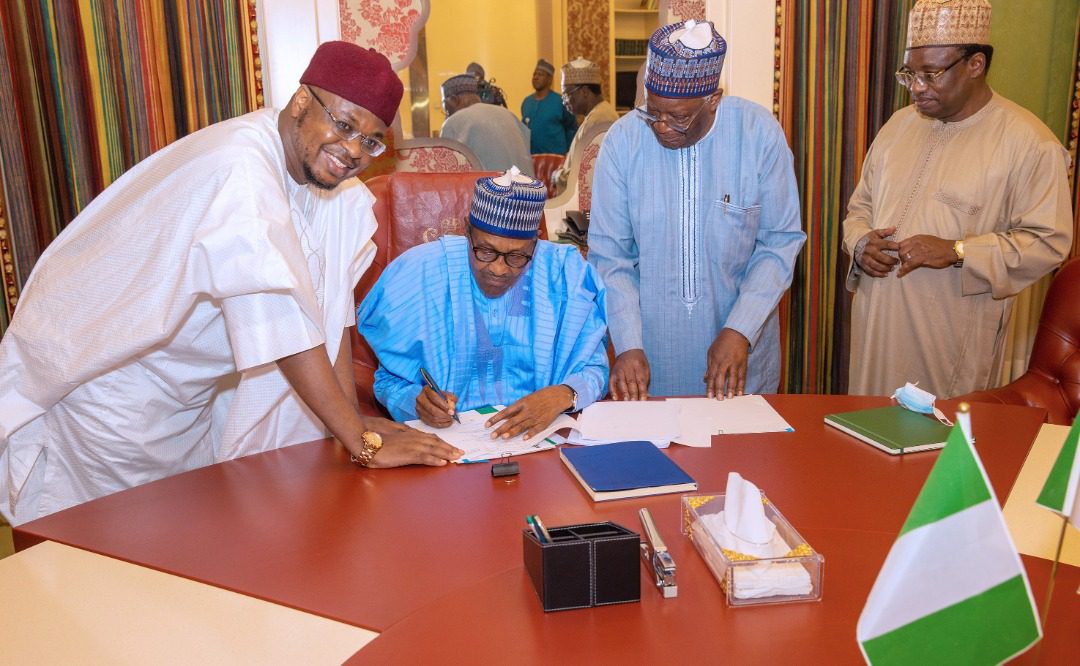This year saw Nigerian startups raise impressive venture capital funding, despite the global economic downturn that caused the world’s startup investment largesse to dip. With Africa being the only exception globally, Nigeria had the largest share of the pie, with many of its startups getting fatter purses in 2022.
Nigeria boasts of one of the continent’s fastest-growing startup ecosystems, according to StartupBlink’s ranking of Africa’s top tech ecosystems in its Global Startup Ecosystem Index, 2022. A booming tech ecosystem and a large market automatically mean more opportunities for startup funding.
No wonder this TechCrunch article described Nigeria as “a magnet for venture capital, a hotbed for startup formation, and a strategic entry point for Silicon Valley”.
Read also: A list of the biggest wins of the Nigerian tech ecosystem in 2022.
How Nigerian startups fared in 2022
In 2022, venture funding was pretty satisfying for the Nigerian tech ecosystem. The first half of the year was solid: $678 million was raised in 107 different deals between January and April, according to the Africa Tech and Fintech report by Renaissance Capital.
But the months in the second half have been quieter for the Nigerian tech ecosystem. For instance, in November, only $16m of funding was announced, the lowest monthly number since June 2021, per Africa: The Big Deal, a newsletter that focuses on startup funding in Africa above $100,000 on the continent.
As of December 1, 2022, Nigerian startups had raised over $1.2 billion, according to data from Africa: The Big Deal. Though this represents a 21% year-on-year (YoY) decline compared to the over $1.5 billion raised last year, it is still a good number, considering the global economic downturn and other issues that led to the decline in venture funding in nearly every region — except Africa.

Among the ‘Big Four’ countries, only Nigeria and South Africa recorded a decline in funding in 2022. For context, Africa: The Big Deal reported that South African startups had only raised $500m by the end of November 2022, half of the funding it had raised by that time in 2021. This decline is attributed mainly to the H2 slump in funding that hit nearly every tech ecosystem on the continent. According to the CB Insights State of Venture Q3’22 Report, venture funding in Africa surprisingly dropped by 54% in Q3 2022.
Egypt and Kenya, on the other hand, had a better run. By August, startups in Egypt had already raised more than they had in the whole of 2021 ($600m+) and went on to exceed the number by 38%. In November, Blnk, an Egyptian digital lending startup, raised $32 million in its pre-seed and seed rounds.
Similarly, the Kenyan startup ecosystem fared pretty well, exceeding its 2021 numbers by March. With almost $1 billion raised as of December 1, 2022, it has recorded 2.5x YoY growth between last year and 2022. Two weeks ago, Zeraki, a Kenyan Edtech platform, raised $1.8 million in a seed funding round to improve its product catalogue and expand regional services.
Biggest funding announcements by Nigerian startups this year
In February, the Nigerian unicorn Flutterwave raised a $250 million Series D round, which brought its valuation to more than $3 billion — making it Africa’s most valuable startup. The raise is also the biggest funding announcement in Nigeria in 2022.
In March, Moove, the Nigerian mobility fintech and Uber’s largest vehicle supply partner in Europe, the Middle East, and Africa, raised $105 million in new Series A2 financing to scale across its present markets and move into new markets outside Africa.
In May, Interswitch, one of Africa’s largest fintech companies, secured a $110 million deal in a joint venture deal with LeapFrog Investments and Tana Africa Capital to increase its presence across Africa with its digital payment services.

In August, Nigerian fintech startup TeamApt raised $50M in a “pre-Series C round”. The amount represented 13.6% of the company’s total funding. Per the CB Insights State of Venture Q3’22 Report, this is the highest amount raised by an African startup in the third quarter of 2022.
In September, Vendease, a Y Combinator-backed digital platform allowing African restaurants to buy supplies, access financial services, and power their business operations, secured a Series A equity round of $20 million.
Related article: Top 5 Nigerian tech funding announcements of 2022.
What has enhanced Nigeria’s growth in venture funding
In past years, the Nigerian tech ecosystem has witnessed significant growth in venture funding. For instance, Nigerian startups have raised about $3.6bn since 2019, representing about 86 per cent of the total funding in the Western Africa region in the period.
But why? According to the African Development Bank’s (AfDB) 2021 report, Nigeria- like other “big four” countries- continues to push ahead faster than other African countries regarding start-up investment and funding, primarily because of its large economy and sizeable population. With a GDP of roughly $440bn and a population of over 200 million, Nigeria is projected to be the third-largest country by population in the world by 2050.
Another likely reason for this growth is the effort of the Nigerian government to support the ecosystem in terms of policies. For instance, in October, the Nigeria Startup Bill (NSB) — described as the long-awaited reform that the Nigerian tech space needs — was passed into law.

The legislation — the brainchild of the collaboration between tech stakeholders and government representatives — offers tax breaks for startups and their employees, a path to dialogue with government officials, and the Startup Investment Seed Fund for young Nigerian entrepreneurs, among others.
The Securities and Exchange Commission (SEC) recently approved the rules for listing on Nigeria Exchange Limited (NGX)’s new Technology Board. This NASDAQ-style board is a specialized platform for technology-based companies to list and raise capital on the Nigerian Exchange.
The central goal is to encourage investments in indigenous technologically inclined companies and others across Africa, provide greater visibility to these companies and ultimately deepen the Nigerian capital market.
Credit: Source link


Comments are closed.